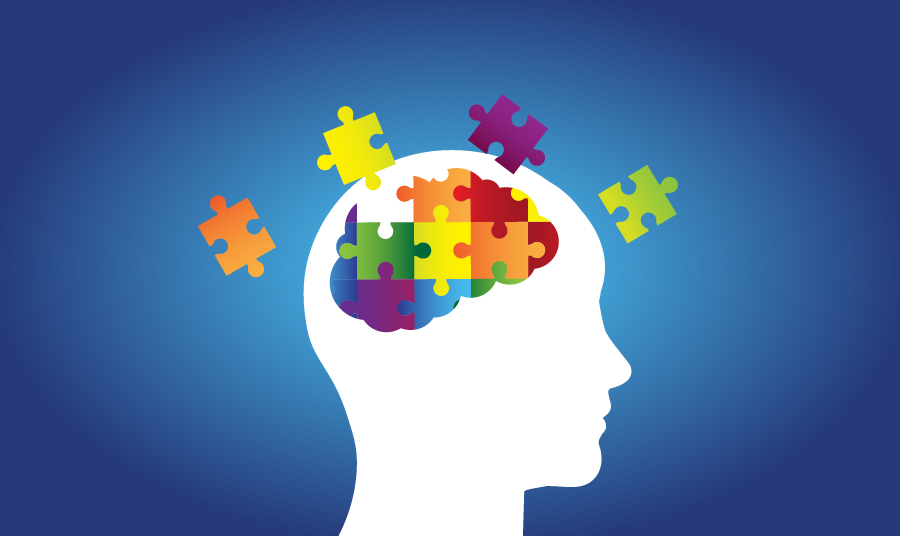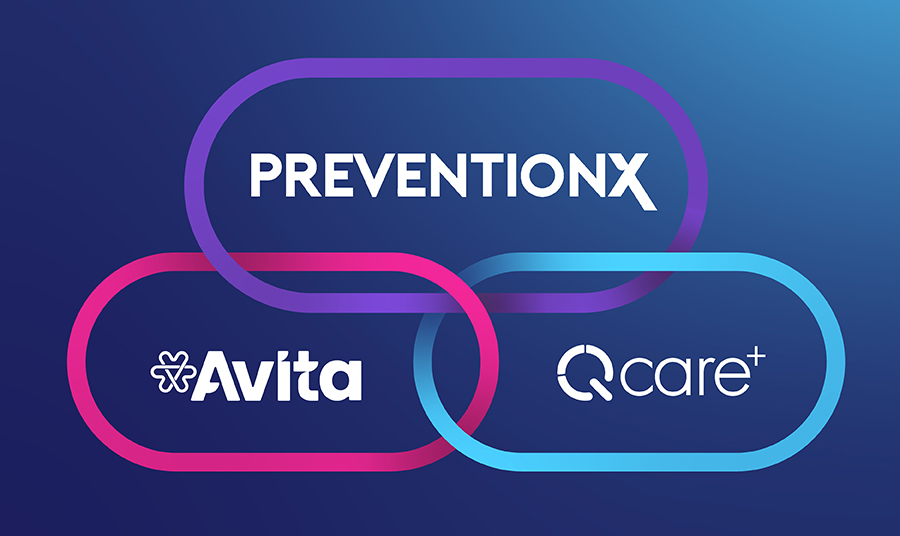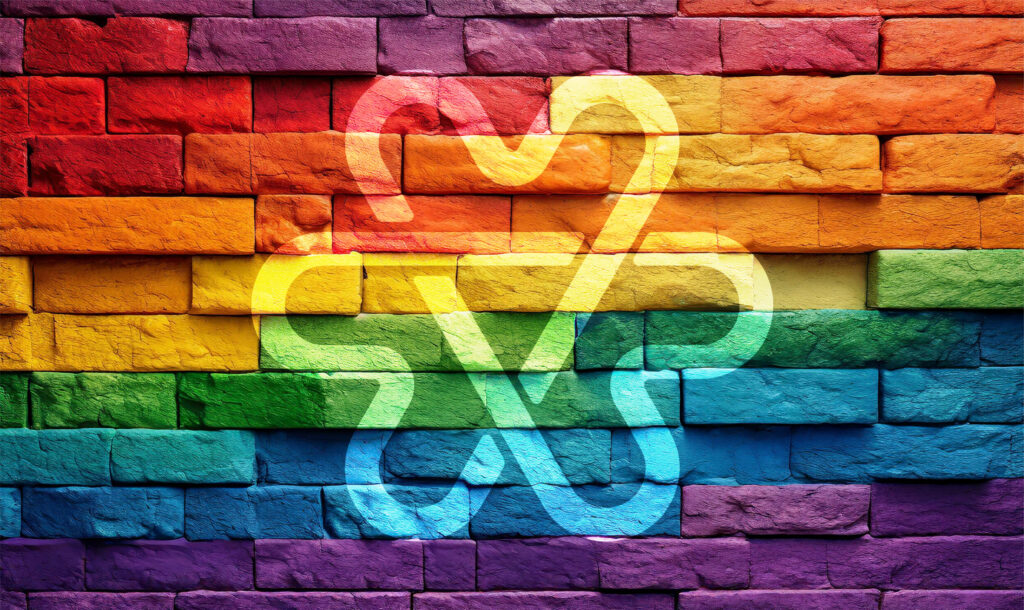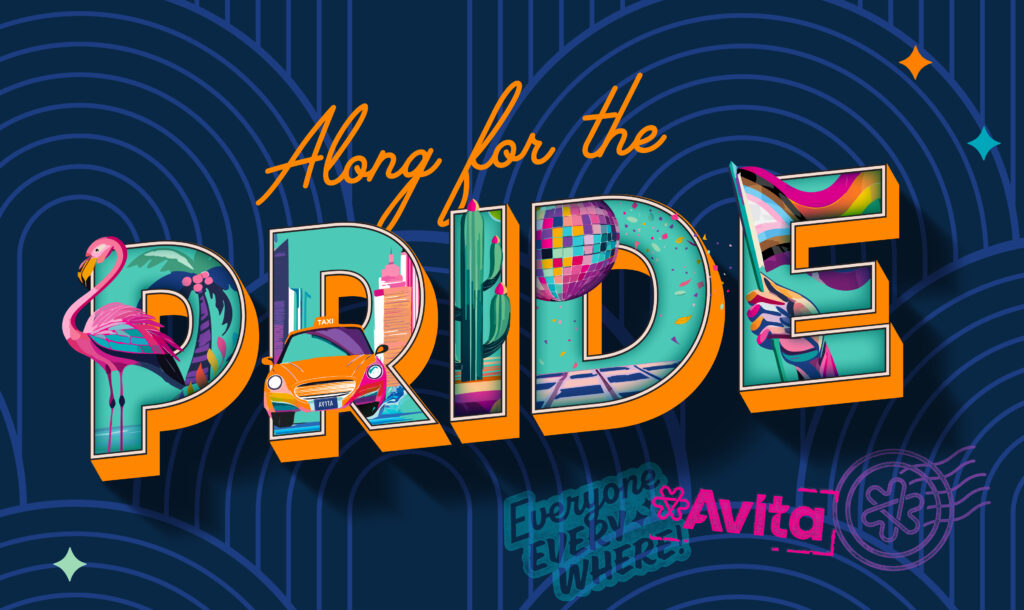This blog post discusses topics related to mental health. It may contain content and descriptions of challenging situations that could be distressing for some readers. We understand that discussing these subjects can be triggering, so please proceed with caution and prioritize your well-being. If you or someone you know is struggling with mental health issues, please seek support from a mental health professional or trusted individual.
Lack of legal protections and violation of civil and medical rights.
Stigma, discrimination, and victimization.
Family rejection.
Barriers to accessing compassionate, quality health care.
These are just some of the societally based challenges members of the LGBTQ+ community face that can impact their mental health (despite stubbornly pervasive misinformation, identifying as a member of the LGBTQ+ community is NOT a mental disorder or illness).
Studies show that LGBTQ+ individuals are more than twice as likely as their heterosexual peers (transgender people are four times more likely than cisgender folks) to experience behavioral health disorders. Almost a third of LGBTQ+ youth reported that recent laws and policies targeting their community have had a substantial negative impact on their mental health over the past year. A staggering 41% of them has seriously considered suicide. A full 53% of older LGBTQ+ adults surveyed said they feel isolated, a situation experts estimate can shorten their lifespans by up to 15 years.
The issue is further exacerbated by the fact that many LGBTQ+ Americans feel unheard about getting help for their mental health concerns. In fact, 24% of LGBTQ+ Americans disclosed that a provider had blamed them for their health problems.
Many LGBTQ+ Americans feel unheard about getting help for their mental health concerns. In fact, 24% of LGBTQ+ Americans disclosed that a provider had blamed them for their health problems.
There is help—and hope
But there is help—and hope. According to the National Alliance on Mental Illness (NAMI), most people diagnosed with a mental health challenge can experience relief and live a satisfying life by participating in an individualized treatment program. Such a plan might include one or a combination of the following elements (this is not an exhaustive list):
- psychotherapy
- medication
- peer support groups
- meaningful social opportunities, such as local drop-in centers or clubhouses
- a balanced diet, exercise, and sleep
Read on to learn how to find the right mental health provider and a list of behavioral health resources designed for the LGBTQ+ community.
According to the National Alliance on Mental Illness (NAMI), most people diagnosed with a mental health challenge can experience relief and live a satisfying life by participating in an individualized treatment program.
Tips for finding a mental health provider who’s the right fit
Unfortunately, many people seeking mental health services don’t know where to start when looking for a provider. Those in the LGBTQ+ community often face additional complications in discovering a behavioral health professional skilled in cultural competency and comprehensive care. Here are tips for finding the right fit:
- Check with your insurance: If you have insurance, it’s always best to check which providers you may already have access to. This will ensure the therapy you receive is affordable based on your existing plan.
- Consider free mental health options: If you’re one of the millions of Americans without health insurance, you can still take advantage of no-cost mental health services for the LGBTQ+ community. See the list below for national resources or reach out to your local LGBTQ+ health center for other recommendations.
- Get real about your preferences: When seeking mental health services, it’s ideal to identify a preferred provider demographic. It’s okay to choose a clinician of a particular gender, race, nationality, or orientation. What’s important is to find a specialist you feel comfortable with so you can be honest about your concerns and needs.
- Observe your comfort level: During your initial assessment with a clinician, observe how comfortable you are in their care. Can you share your feelings openly and honestly with them? Ultimately, it’s crucial to find a person or organization that accepts you for you, respectfully acknowledges your concerns, and refuses to label you for any challenges you’re facing.
Ultimately, it’s crucial to find a person or organization that accepts you for you, respectfully acknowledges your concerns, and refuses to label you for any challenges you’re facing.
Behavioral health resources for the LGBTQ+ community
First and foremost, if you or someone you know is in crisis or considering suicide, call 911 or the 988 Suicide and Crisis Hotline National Suicide Prevention Lifeline (available by calling or texting 988), which is now piloting an LGBTQ+-specific support program.
Other mental health resources tailored to the LGBTQ+ community include:
The Trevor Project understands the challenges LGBTQ+ young people face and offers 24/7/365, confidential crisis counseling without judgment by phone, text, and chat.
Call: 866-488-7386
By text, message: Text START to 678-678
To chat, click here
The SAGE National LGBTQ+ Elder Hotline connects older LGBT older people and caretakers with friendly responders. Confidential crisis counseling is available 24/7. Information about community support resources such as health care, transportation, counseling, legal services, and emotional support programs is also available.
Call: 877-360-LGBT (5428)
The Trans Lifeline Hotline is a 24/7 crisis support hotline available in the U.S. and Canada and staffed by transgender people for transgender people.
Call 877-565-8860 in the U.S. or 877-330-6366 in Canada.
The GLMA: Health Professionals Advancing LGBTQ+ Equality’s LGBTQ+ Healthcare Directory is a free, searchable database of various health care providers who are knowledgeable and sensitive to the unique health needs of LGBTQ+ people in the USA and Canada.
The National Queer & Trans Therapists of Color Network offers an interactive online directory that helps QTBIPOC connect to QTBIPOC mental health practitioners.
The LGBT National Hotline provides a confidential, safe space where callers of any age can speak about sexual orientation or gender identity/expression issues. This includes coming out issues, relationship concerns, bullying, workplace issues, HIV/AIDS anxiety, safer sex information, suicide, and much more. Call 888-843-4564.
Also available from the LGBT National Help Center are the following resources:
- LGBT National Coming Out Support Hotline: 888-688-5428
- LGBT National Youth Talkline: 800-246-7743




